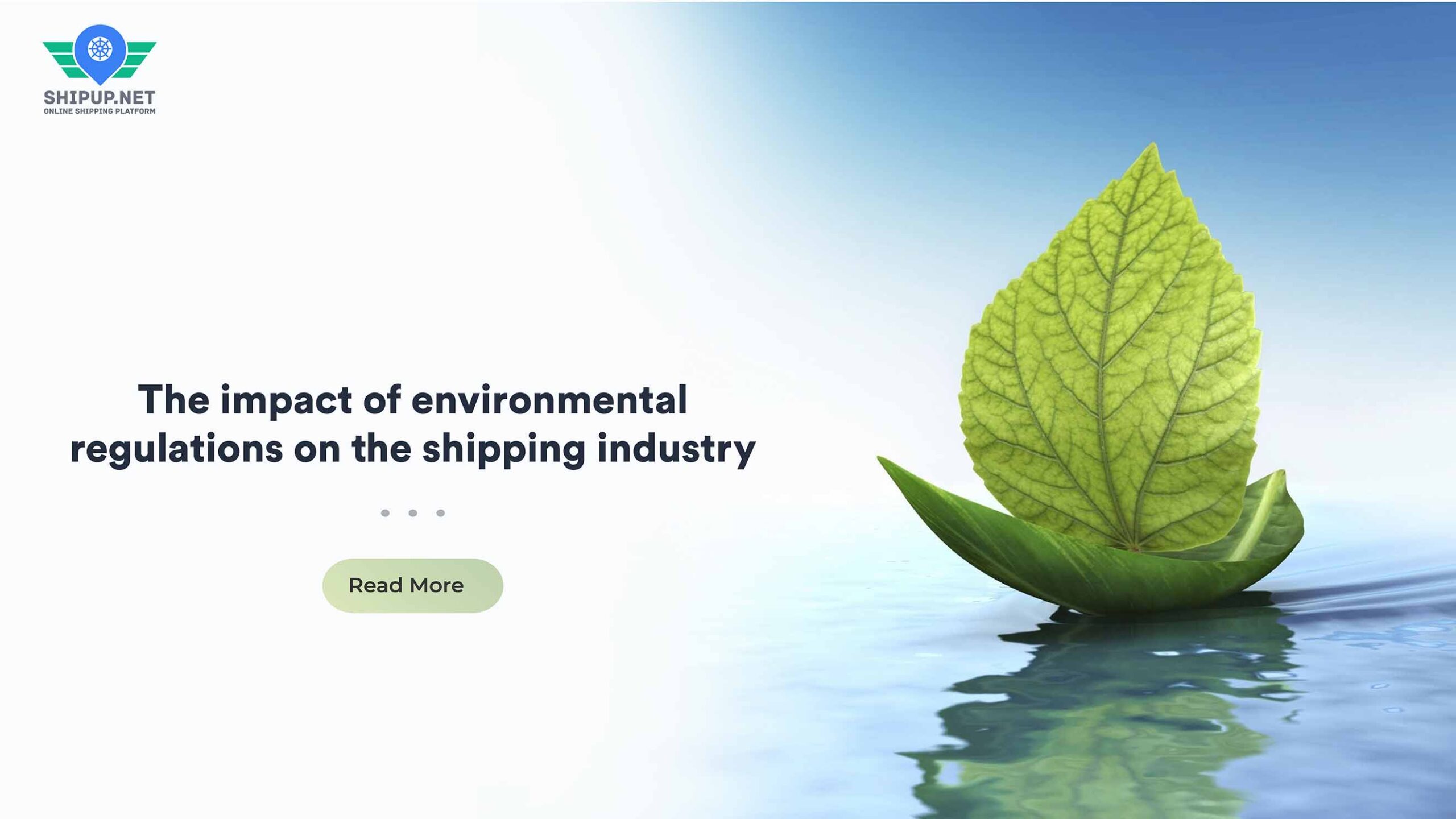Shipping industry has come a long way in terms of development, growth, and efficiency. It plays a crucial role in the global economy by facilitating trade and commerce across the world. However, the industry has also been facing increasing concerns over its environmental impact, particularly with regard to air and water pollution. This has resulted in the introduction of various environmental regulations aimed at reducing the impact of shipping on the environment.
The Purpose of the Article
The purpose of this article is to examine the impact of environmental regulations on the shipping industry and to provide insights for importers, exporters, and freight forwarders. The article will discuss the regulations that affect the shipping industry, including the role of the International Maritime Organization (IMO) and national regulations. It will also examine the impact of these regulations on shipping companies, global trade, and supply chains.
Brief Overview of Environmental Regulations
Environmental regulations are a set of laws and policies aimed at reducing the negative impact of human activities on the environment. They are designed to protect the environment and promote sustainability. In the shipping industry, environmental regulations have been introduced to reduce the emissions of harmful pollutants such as sulfur oxides (SOx), nitrogen oxides (NOx), and particulate matter. These regulations aim to reduce air and water pollution, minimize the risk of oil spills, and ensure the safe disposal of waste.
IMO’s role in regulating shipping industry’s environmental impact
The International Maritime Organization (IMO) is a specialized agency of the United Nations responsible for regulating the shipping industry. It was established in 1948 and has since become the primary international body responsible for setting and enforcing standards for the shipping industry. The IMO sets regulations for the shipping industry, including rules for reducing air and water pollution, minimizing the risk of oil spills, and ensuring the safe disposal of waste. The IMO’s regulations are mandatory for all ships that are engaged in international trade and are binding on all IMO Member States.
IMO’s regulations, including MARPOL and the Sulphur Cap
The IMO has introduced several key regulations aimed at reducing the environmental impact of the shipping industry, including the International Convention for the Prevention of Pollution from Ships (MARPOL) and the Sulphur Cap. MARPOL is a comprehensive set of regulations aimed at preventing and minimizing marine pollution from ships. It sets standards for the prevention of oil, noxious liquid substances, harmful substances in packaged form, sewage, and garbage pollution. The Sulphur Cap, which came into effect on January 1, 2020, limits the amount of sulfur oxides (SOx) that ships can emit. The cap aims to reduce air pollution and improve air quality, particularly in coastal and port areas.
National Regulations
Overview of National Regulations
In addition to the regulations set by the IMO, many countries have introduced their own regulations aimed at reducing the environmental impact of the shipping industry. These regulations are designed to complement the IMO regulations and provide additional protections for the environment. Some countries have stricter regulations than the IMO, while others have more relaxed regulations.
Differences between National and IMO Regulations
The differences between national and IMO regulations can create challenges for shipping companies operating in multiple countries. Shipping companies must comply with the regulations of each country in which they operate, which can result in increased costs and administrative burden. In some cases, national regulations may be more stringent than IMO regulations, which can result in additional costs for shipping companies.
Examples of National Regulations in Different Countries
Examples of national regulations in different countries include the European Union’s Monitoring, Reporting and Verification (MRV) regulation, the United States’ Vessel General Permit (VGP), and China’s National Marine Environmental Protection Law. These regulations require shipping companies to monitor, report, and verify their emissions, including CO2 emissions, and to adopt best practices to reduce their environmental impact.
Impact of Environmental Regulations on the Shipping Industry
Cost Implications for Shipping Companies
Environmental regulations have significant cost implications for shipping companies. The adoption of new technologies and equipment to comply with regulations, such as scrubbers to reduce sulfur emissions, can result in increased operational costs. Shipping companies must also invest in research and development to find new and more efficient ways to reduce their environmental impact.
Impact on Global Trade and Supply Chain
Environmental regulations can have a significant impact on global trade and supply chains. Delays and disruptions in shipping operations can result from the adoption of new technologies and processes. Changes in trade routes and shipping patterns may also result from the implementation of environmental regulations. Shipping rates and prices may also be affected by the regulations, as shipping companies pass on the costs of compliance to their customers.
Benefits of Environmental Regulations
Despite the cost implications, environmental regulations have several benefits for the shipping industry and the environment. The regulations help to reduce the environmental impact of shipping, improve the health and safety of workers and communities, and increase the sustainability and resilience of the shipping industry. The adoption of new technologies and processes to comply with regulations can result in improved efficiency and reduced emissions, and can also stimulate innovation and investment in the industry.
Conclusion
In conclusion, environmental regulations have a significant impact on the shipping industry. The regulations aim to reduce the environmental impact of shipping and promote sustainability. Shipping companies must comply with the regulations set by the IMO and national regulations, which can result in increased costs and administrative burden. Despite the challenges, environmental regulations have several benefits for the shipping industry and the environment, including reduced emissions, improved health and safety, and increased sustainability. Importers, exporters, and freight forwarders must stay informed about the latest environmental regulations and their impact on the shipping industry to ensure that their operations are compliant and efficient.


